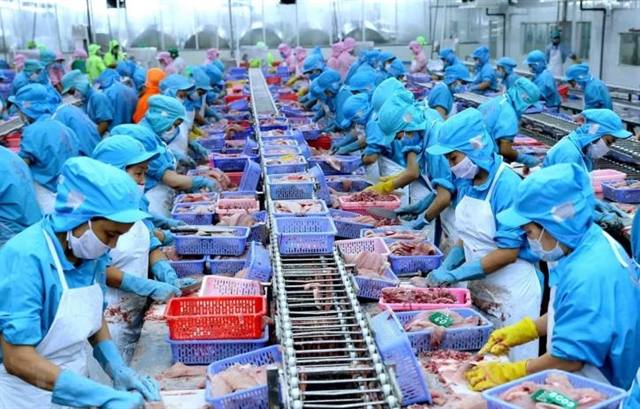 Economy
Economy

Europe offers export opportunities for Vietnamese firms, but is a market with stringent requirements in terms of quality and other aspects.

|
| Seafood is among key export products of Việt Nam to the EU market. — VNA/VNS Photo Vũ Sinh |
HCM CITY — Europe offers export opportunities for Vietnamese firms, but it is a market with stringent requirements in terms of quality and other aspects.
To exploit the market, firms need to thoroughly understand its demands and requirements, and have appropriate export strategies, experts said.
Trần Thị Trang, head of the Investment and Trade Promotion Centre of HCM City’s training office, said Europe is one of Việt Nam’s largest trading partners and the country is the second largest Southeast Asian trading partner for the EU.
Speaking at a webinar on ‘How to expand and secure sustainable business opportunities with EU clients’ held by the ITPC and Source of Asia (SOA) on May 5, Zacharie Blondeau, the latter’s sourcing department director, said Việt Nam has sustained its exports to the EU despite the impacts of the Covid-19 pandemic.
The EU-Việt Nam Free Trade Agreement that took effect in August last year has significantly increased bilateral trade, he said.
Việt Nam’s exports to EU account for only 2 per cent of the bloc’s total imports, meaning there is enormous potential for increasing them, he pointed out.
But a change in European consumer behaviour is a growing challenge for businesses, who need to pay closer attention to sustainability in terms of the environment, social benefits, green energy, use of recycled materials, and having short supply chains with traceability, he said.
In that context, Vietnamese exporters should “assess your current positioning towards sustainability, understand your export market, import rules and recommendations, adjust your supply chain to match international standards and rules and invest in ‘continuous improvement’,” he said.
Huỳnh Thanh Trung, director of LeanWares Industry Co., Ltd, said, “To penetrate a market, we must understand its demands and requirements to set up factories complying with them.”
Markets like the EU set the bar high not only for product quality but also design, product information on the packaging, added value, and so on, and businesses targeting them need to focus on building a factory that conforms from the outset and controlling their entire supply chain, logistics and distribution to ensure product consistency, he said.
Đỗ Văn Huy, account manager of Shire Oak International, too said EU consumers care about how a product is made and want factories using renewable energy.
Đinh Thị Tuyết Nhung, head of SOA’s international market expansion department, said the key factors in expanding markets are quality and branding, understanding the markets and having effective sales channels, appropriate resource planning and clear objectives.— VNS




